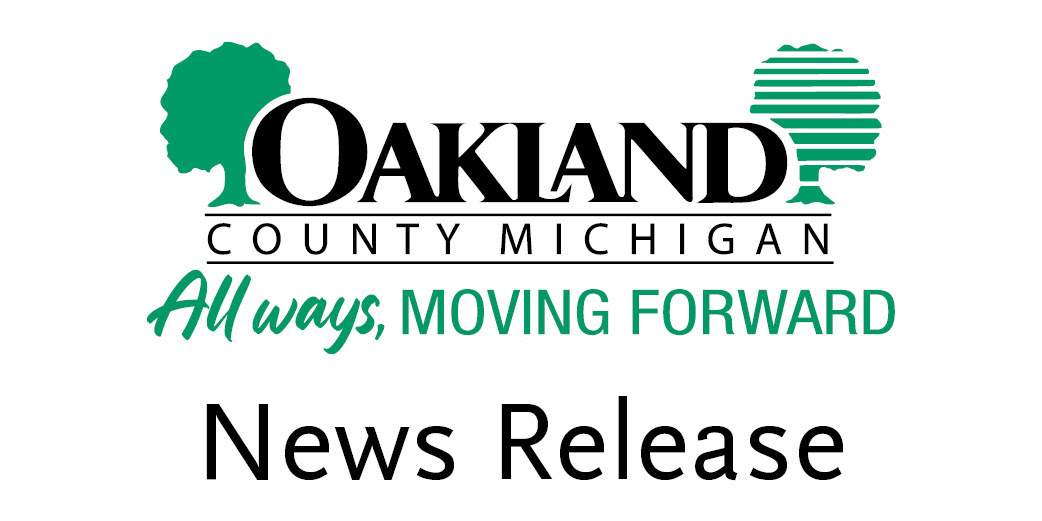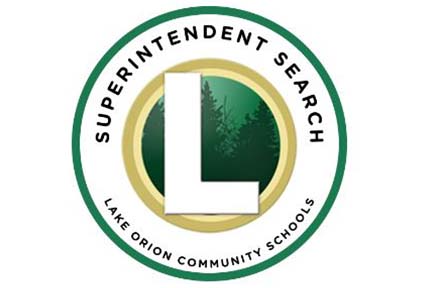
Gov. Whitmer, Legislative Leaders Celebrate Passage of FY25 Budget
Bipartisan, balanced budget will support students, boost public safety, and build affordable housing
LANSING, Mich. — Today, Governor Gretchen Whitmer, Senate Majority Leader Winnie Brinks, Speaker of the House Joe Tate, and other legislative leaders celebrated passage of a balanced and bipartisan budget for fiscal year 2025 that supports students, boosts public safety, builds affordable housing, and will help anyone “make it” in Michigan.
“We are once again setting Michigan up for success by making record investments that will benefit everyone across the state without raising taxes by a penny,” said Governor Gretchen Whitmer. “This budget will grow our economy, fix the damn roads, ensure first responders have the funding to keep our neighborhoods safe, and build a heck of a lot more affordable housing, while also bringing down costs and putting more money back in people’s pockets. As a parent, I know our kids are our number one priority, which is why this budget puts students first by making historic investments to improve learning outcomes from pre-K through college, so that every child can get a world-class education. Together, we are getting things done that make a real difference in people’s lives and ensuring everyone can ‘make it’ in Michigan and will continue to improve learning outcomes so every student can succeed.”
The FY25 budget totals $82.5 billion, including a general fund total of $15 billion and a school aid budget total of $19 billion.
“Today, we passed a historic, balanced state budget that truly serves and uplifts Michigan families, students, schools, workers, and communities,” said Senate Majority Leader Winnie Brinks, D-Grand Rapids. “By placing the hardworking people of our state at the forefront of our budget negotiations, we are building up a Michigan where everyone has an equitable opportunity to succeed.”
“This budget represents our core Democratic values — keeping residents safe, creating equitable housing, and making life more affordable so families can flourish,” said Speaker of the House Joe Tate, D-Detroit. “However, passing a smart, responsible budget is not by any means just an illustration of what we stand for — these investments will provide tangible stability Michiganders can truly depend on. Every hometown from Detroit to Grand Rapids to the Upper Peninsula will benefit with tens of millions to establish a Public Safety Trust Fund, $100 million for innovative housing programs, and tax relief for families and seniors. Michigan Dems are making transformative investments for every main street and every household — Michigan continues to be on a stronger and brighter path forward.”
“This ‘Make it in Michigan’ budget will help kids learn, reduce crime, lower costs for families, and fix our roads and bridges,” said State Budget Director Jen Flood. “This budget will benefit Michiganders for decades to come and builds on our proven track record of fiscal responsibility while creating jobs and powering economic development.”
“By making equitable and innovative investments in free community college, support for educators, enhanced healthcare services, local infrastructure, and more, we’re laying a foundation for sustainable growth and prosperity,” said Senate Appropriations Chairwoman Sarah Anthony, D-Lansing. “Together, we are building a stronger, more resilient Michigan where every resident can prosper and thrive.”
“This budget continues our commitment to put people over politics. We are making fiscally responsible investments in communities across Michigan, ensuring our state is a place everyone can find a job, start a family, open a business and live safely,” said state Representative Angela Witwer, D-Delta Township, chair of the House Appropriations Committee. “These investments lay the groundwork to make real improvements to local infrastructure and create strong hometowns for Michiganders. Through investing in community revitalization, education and public safety, we are working to deliver stability people can depend on.”
A total of $75 million is invested in a new revenue sharing trust fund, which supports local communities and the services they provide including first responders, transportation, and water infrastructure, as well as placemaking and recreation opportunities for residents.
Balancing Michigan’s Budget
The budget makes critical investments to ensure Michigan’s budget is balanced:
- Pays off a “mortgage” early (certain Michigan Public School Employees’ Retirement System liabilities), while protecting teacher pensions and retirement benefits, freeing up $670 million that can be invested into classrooms to help children learn.
- $50 million deposit into the Budget Stabilization Fund, which will bring the grand total in the rainy day fund to nearly $2.2 billion by the end of FY25.
- $20 million deposit ($10 million in FY25 and $10 million in a FY24 supplemental) into the Disaster and Emergency Contingency Fund to cover current and identified expenses and safeguard against the risks of future disasters.
- $3.3 million to improve turnaround time and public outreach for environmental permitting.
A Better, More Affordable Education
Record investments in education, from preschool to postsecondary, are continued, including:
K-12 Education – Helping Kids Learn
- $589 million spread across districts, ISDs, libraries, and community colleges to offset retirement costs. This saves K-12 districts the equivalent of more than $400 per pupil, equivalent to a 4.2% foundation allowance increase.
- $133 million, including $25 million in new funding, to continue historic investments for student mental health and school safety needs.
- $181 million to help students reach their full academic potential, including continuation of payments for literacy grants and literacy coaches.
- $200 million to continue providing universally-free breakfast and lunch to Michigan’s 1.4 million public school students, helping students focus on learning and saving families $850 per year.
- $130 million for continued expansion of free pre-K to every 4-year-old in Michigan—two years ahead of schedule—saving families $10,000 a year.
- $54 million to serve an estimated 5,300 additional children.
- $31 million to increase the full day per child allocations to $10,185.
- $25 million to open new classrooms in underserved areas.
- $18 million to continue higher payments for student transportation (total funding of $28 million).
- $2 million to provide marketing and outreach support to ensure families are aware of programming options in their area.
- $100 million in recognition of the crucial role high-quality teachers play in the success of their students.
- Continued support of the MI Future Educator Program, a tuition-free program for college students to become certified teachers and to provide stipend payments to student teachers.
- Funds to retain and develop existing teachers through mentorship programs.
- Continued support for payments to offset the cost of student loans for educators.
- $97 million in funding to support academically at-risk students (9% increase), English language learners (26% increase), career and technical education students (6% increase), and students in rural school districts (6% increase).
- $125 million to continue reimbursements to districts for transportation costs, helping ease the disproportionate financial impact some districts face—freeing up dollars available for the classroom.
- $75 million to support students through before and after school programming.
- $65 million to fund a 15% rate increase for childcare and bonuses for childcare workers.
Higher Education & Workforce Development
- A 1.5% ongoing and a 1% one-time increase for university and community college operations to support higher education learning and to advance the Governor’s goal of 60% of working adults earning a degree or skills certificate by 2030.
- $30 million investment to increase funding for the Michigan Achievement Scholarship, the state’s flagship scholarship program, providing a pathway to community college, tuition guaranteed.
- Expands the Michigan Achievement Scholarship with the Michigan Guarantee to ensure every Michigan high school graduate can receive an associate degree or skilled certificate tuition-free at a community college, saving more than 18,000 students up to $4,820 on tuition each year.
- Equivalent of up to $27,500 toward the cost of attendance for a bachelor’s degree for eligible high school graduates.
- $52 million to continue Michigan Reconnect, providing a tuition-free pathway to adult learners 25 and older.
- $20 million increase in the Tuition Incentive Program, which provides tuition support to lower income students in Michigan’s community colleges, public universities, and private universities.
- $14.5 million for the North American Indian Tuition Waiver, to provide tuition-free education to eligible Native Americans at Michigan public universities and community colleges.
The FY25 budget puts money back in people’s pockets, including:
- $3 million to create the Secure Retirement program, a state-managed retirement plan marketplace that allows small businesses (fewer than 100 employees) to participate and provide retirement savings plans to their employees at no cost to the employer.
- $500,000 to continue the federal EBT summer food benefit program, which distributes $108 million in federal funds to ensure children have access to nutritional food throughout the summer months, saving families $120 per child.
- Continues the Working Families Tax Credit, which was quintupled last year, delivering tax relief to working families, directly benefitting half of all Michigan kids.
- Continues providing tax relief to Michigan seniors, following the 2023 repeal of the retirement tax, putting money back in the pockets of hundreds of thousands of households.
The budget powers economic development, rebuilds our roads and bridges, builds strong communities, replaces lead pipes and more, including:
- $45.5 million for Talent and Growth to support Michigan’s current and future workforce needs and population growth, including specialized economic assistance to businesses locating or expanding in Michigan to meet their talent and workforce needs, developing customized talent solutions to fill identified talent gaps, and grow Michigan’s population.
- $2.5 million for the Economic and Worker Transition Office to aid Michiganders with the transition to electric vehicles and clean energy, and prepare for the jobs of the future.
- $50 million in continued funding for the Revitalization and Placemaking program, including support for a new program to implement transformational public space development projects that will increase the population by creating high-density, high-amenity, walkable, vibrant neighborhoods and business ownership opportunities for locals.
- $10 million for Minority Owned Business grants.
- $100 million to construct more affordable housing, building on the historic $1.4 billion investment to build or rehabilitate almost 10,000 homes and the unprecedented $50 million set aside for housing.
- $3.3 million for the Housing Readiness Incentive Grant Program to provide grants to local communities to cover the costs associated with master plan updates, zoning amendments, and other actions to encourage increasing housing supply and affordability.
- $3 million to establish a Farm to Family program, focusing on building agricultural diversity, fueling economic growth in agriculture, increasing food security, providing healthy food options, and cultivating climate resiliency across the industry.
- $500 million in continued investment in the Strategic Outreach Attraction Reserve fund to attract new manufacturers and industries to Michigan helping to diversify our economy and compete nationally for high-paying jobs.
- $60 million to establish an Innovation Fund to invest in scalable startups and help launch hundreds of new Michigan-based companies, creating thousands of jobs.
- $15 million to build off the iconic Pure Michigan campaign, on top of the $15 million in existing general fund for the program.
- $2.5 million for the Office of Rural Prosperity to expand outreach and grant funding in rural communities throughout the state.
- $75 million in a new Revenue Sharing Trust Fund to continue support for all cities, villages, townships, and counties across the state.
Rebuilding Our Infrastructure
- $150 million to support the reopening of the Palisades Nuclear Facility in Southwest Michigan, protecting 600 high-paying jobs at the plant and 1,100 additional jobs throughout the community while helping Michigan reach its clean energy goal.
- $509.4 million for water infrastructure to fund lead service line replacement and water infrastructure, and climate change mitigation.
- $48.3 million to provide loans and grants to local communities to support projects associated with lead service line replacement.
- $74.5 million of new one-time funding for local roads and bridges and other critical infrastructure projects.
- $247.6 million of new funding to improve state and local roads, highways, and bridges across the state. The FY25 budget includes a total of $4.2 billion for road and bridge construction projects, including $1.7 billion in federal highway aid from the Infrastructure Investment and Jobs Act.
- The new investments in roads and bridges will add to $700 million from the final tranche of Rebuilding Michigan Plan bonds to be issued later this year. Key upcoming Rebuilding Michigan projects include work on I-94 near Detroit Metro Airport, I-696 from Southfield through Warren, and a critical bridge project in Erie Township.
- $75 million of additional funding to support local transit operating expenses, federal transit capital grants, marine passenger services, rail operations and transit capital matching funds.
- $20 million of federal American Recovery Plan funding to support local transit operating expenses.
- $24 million to support new technology and mobility projects, including drone infrastructure projects, e-bike incentives, and an inductive charging pilot project.
- $7.1 million of additional funding for Michigan airports and air service retention and enhancement.
Reducing Crime & Keeping Michigan Healthy
The budget includes funding to keep Michigan families safe and healthy, including:
- $75 million to establish a Public Safety Trust Fund to provide cities, villages, and townships with additional resources for police services and to support community violence intervention efforts.
- $75 million in a new Revenue Sharing Trust Fund to continue support for all cities, villages, townships, and counties across the state.
- $15 million for capital improvements and infrastructure projects at Selfridge Air National Guard Base.
- Hire and train 120 Michigan State Police troopers, and $5.5 million to support salary and equipment costs of the 145th state police trooper recruit school, anticipated to graduate 50 new troopers this summer.
- $25 million for lifecycle upgrades to the state’s safety communication system, ensuri
|










 From gutters to mailboxes, birds can choose inconvenient, silly – and sometimes dangerous – places to nest. If you come across such a predicament, what can you do?
From gutters to mailboxes, birds can choose inconvenient, silly – and sometimes dangerous – places to nest. If you come across such a predicament, what can you do?
 Summer is officially here, and so are opportunities to learn more about Michigan’s natural and cultural resources. Here are just a few events coming up on the DNR’s July calendar:
Summer is officially here, and so are opportunities to learn more about Michigan’s natural and cultural resources. Here are just a few events coming up on the DNR’s July calendar:

 Last month we announced
Last month we announced  See more pictures by
See more pictures by 